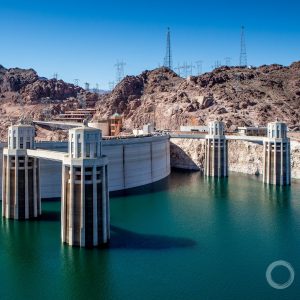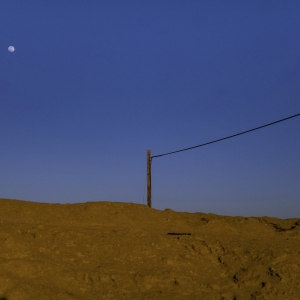The Stream, May 25, 2021: Mining Denver’s Sewers for Energy
YOUR GLOBAL RUNDOWN
- The largest project in North America to tap the heat in sewer pipes is under construction in Denver.
- Leaders in Iran blame rolling blackouts on drought, heat, and cryptocurrency mining.
- South African scientists confront challenges in monitoring wastewater for SARS-CoV-2.
- Water systems in West Virginia report losing large volumes of water to leaks and pipe breaks.
Tensions rise in the dry Klamath basin of southern Oregon.
“I don’t want anybody to do anything stupid or … you know, cause a problem, a civil problem. That’s just not going to be productive in the long-run. But, people also have a right to protest.” — Ben DuVal, president of the Klamath Water Users Association. DuVal was commenting on an encampment sited next to a major irrigation canal in the Klamath basin, where drought and water restrictions are raising tensions. Jefferson Public Radio reports that two irrigators purchased land next to the headgates of a major canal. Local affiliates of People’s Rights Oregon, an anti-government group founded by Ammon Bundy, set up tents on the land, calling it a “water crisis info center.” The Bureau of Reclamation told basin farmers that no water would be available from the A canal this summer for the first time since it opened in 1907.
IN RECENT WATER NEWS
HotSpots H2O: Israeli Airstrikes Intensify Palestine’s Water, Humanitarian Crises
After more than a week of air and artillery strikes that began on May 10, the damage in the crowded coastal enclave of Gaza is immense. Three of Gaza’s few crucial desalination plants, necessary for making potable the tainted supply, are off line because of the bombings. Underground pipe networks, which reach 800,000 people in Gaza, have burst. Officials estimate a 40 percent deficit in the already weak water supply.
What’s Up With Water — May 24, 2021
This week’s episode features research on the carbon emissions of dam reservoirs, officials in Taiwan battling an unusually severe drought, and an investigation by USA Today that found a patchwork of regulations for cleaning U.S. water towers and tanks.
Blackouts Ripple Across Iran
Iran’s Ministry of Energy blamed shrinking hydropower reservoirs for rolling blackouts that began last weekend in major cities. AFP reports that the director of the national electricity company also pointed to high demand due to rising temperatures, as well as cryptocurrency mining, which consumes a lot of power.
TODAY’S TOP WATER STORIES, TOLD IN NUMBERS
28
Number of water systems in West Virginia that reported losing more than half of their treated water to leaks or pipe breaks. The Charleston Gazette-Mail reports that the state average water-loss rate for the 261 systems reporting data was about 25 percent. State regulators set a water-loss benchmark at 15 percent.
54
Countries testing wastewater to track the spread of SARS-CoV-2, the virus that causes Covid-19. According to Nature, researchers in South Africa are employing wastewater surveillance as a virus-monitoring tool. But they are coming up against challenges. About 40 percent of households do not use a toilet that is connected to the sewer system. Periodic blackouts interfere with sampling equipment, which can also be stolen. Still, South African officials plan to use wastewater to track other viruses like polio.
ON THE RADAR
The largest project in North America to tap the heat in sewer pipes is under construction in Denver, Colorado Public Radio reports.
The water in sewer pipes maintains a temperature between 55 and 75 degrees Fahrenheit year round. By using heat exchangers, buildings and heating districts can mine that energy to keep indoor spaces warm in the winter and cool in the summer.
The project in Denver is part of a $1 billion renovation of the National Western Complex, an events center on a 250-acre campus.
Brett writes about agriculture, energy, infrastructure, and the politics and economics of water in the United States. He also writes the Federal Water Tap, Circle of Blue’s weekly digest of U.S. government water news. He is the winner of two Society of Environmental Journalists reporting awards, one of the top honors in American environmental journalism: first place for explanatory reporting for a series on septic system pollution in the United States(2016) and third place for beat reporting in a small market (2014). He received the Sierra Club’s Distinguished Service Award in 2018. Brett lives in Seattle, where he hikes the mountains and bakes pies. Contact Brett Walton







Leave a Reply
Want to join the discussion?Feel free to contribute!